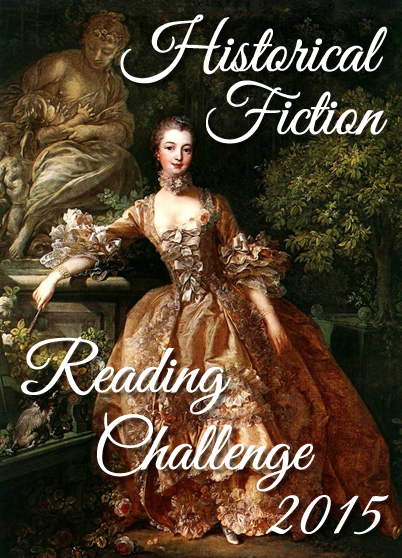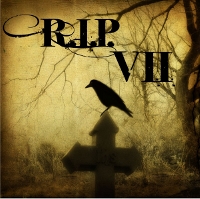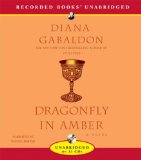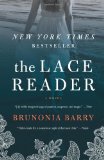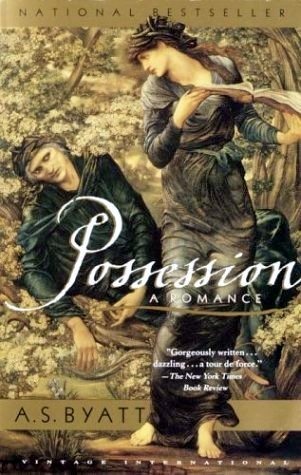 Possession by A.S. Byatt
Possession by A.S. Byatt Narrator: Virginia Leishman
Published by Vintage on October 1, 1991
Genres: Historical Fiction
Pages: 555
Format: Audio, Audiobook
Source: Audible
Buy on Amazon, Buy on Bookshop
This post contains affiliate links you can use to purchase the book. If you buy the book using that link, I will receive a small commission from the sale.
Goodreads
Possession is an exhilarating novel of wit and romance, at once an intellectual mystery and triumphant love story. It is the tale of a pair of young scholars researching the lives of two Victorian poets. As they uncover their letters, journals, and poems, and track their movements from London to Yorkshire—from spiritualist séances to the fairy-haunted far west of Brittany—what emerges is an extraordinary counterpoint of passions and ideas.
Man Booker Prize Winner (1990)
I first read this novel about 20 years ago on my husband’s recommendation, and I felt like revisiting it. It’s even better than I remembered. The blurb doesn’t do Byatt’s genius justice. Not only did she invent a fictional love story between two fictional Victorian poets, but she also managed to build a world of literary criticism around the poets, replete with territorial academics and tongue-in-cheek digs at some of the wild theories academics espouse about symbolism and meaning. On top of all that, she wrote poetry and critical excerpts purportedly the work of her characters. All of this serves to make this novel and its characters very real. You might swear, after reading the book, that you also had to read Randolph Henry Ash in school and also couldn’t make any sense of him (just as a few of the characters say).
Ash appears to be based on Robert Browning, and this supposition is strengthened by the fact that Byatt’s mother was a Browning scholar. She likely heard many of the things that later cropped up in her book around the dinner table at home. Christabel LaMotte seems to be a composite of writers like Emily Dickinson, Elizabeth Barrett Browning, George Eliot, and Charlotte Brontë. The scholars studying their work seem pretty recognizable figures in academia. I think this book might potentially have a narrow appeal. I’m sure English literature nerds, poetry lovers, and anyone interested in Victorian literature would enjoy it, but beyond that, the poetry passages are purposefully dense and difficult, and I’m not sure the general reading public would find the plot thrilling. (I did.) If your interests lie within that narrow window, reading this book will provide great rewards.
Because a good chunk of this novel is set in the 1850s-1860s, I’m counting it as my first book in the Historical Fiction Reading Challenge for 2022. I’m also counting as a book set in the United Kingdom (a small part is set in France) for the European Reading Challenge. See my reading challenges page for more.
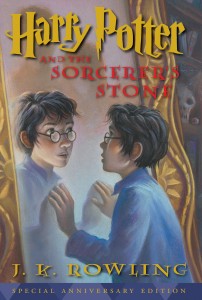 I like to have audio books going when I’m doing mindless housework or making soap (though I haven’t made soap in a while). I don’t know why, but I decided to listen to the Harry Potter books again, even though I just re-read them (the British versions) last year. I could, I guess, space out my re-reads a bit. But one reason I did it is there is nothing like Harry Potter to perk me up. I was feeling just about as bad as I have ever felt when I discovered the books for the first time. I was actually reading the first one, I think, close to when 9/11 happened, if not during that time. I know I read it before that first movie came out that November. It seemed like when I was feeling my worst, there were these books, and they really did help me escape for a little while and feel a lot less bad about everything. I will always be grateful to them for that.
I like to have audio books going when I’m doing mindless housework or making soap (though I haven’t made soap in a while). I don’t know why, but I decided to listen to the Harry Potter books again, even though I just re-read them (the British versions) last year. I could, I guess, space out my re-reads a bit. But one reason I did it is there is nothing like Harry Potter to perk me up. I was feeling just about as bad as I have ever felt when I discovered the books for the first time. I was actually reading the first one, I think, close to when 9/11 happened, if not during that time. I know I read it before that first movie came out that November. It seemed like when I was feeling my worst, there were these books, and they really did help me escape for a little while and feel a lot less bad about everything. I will always be grateful to them for that.

